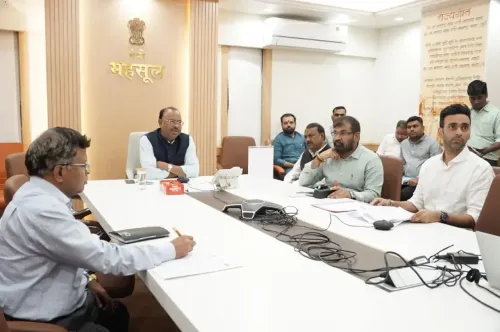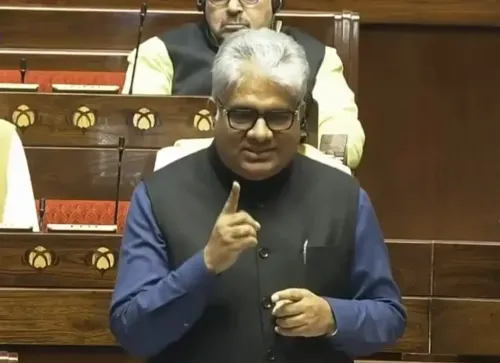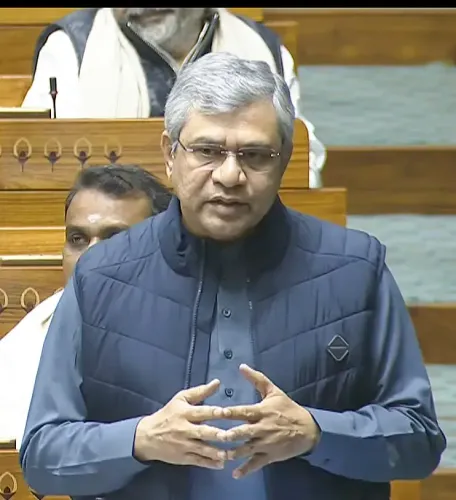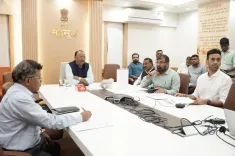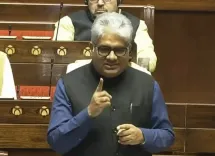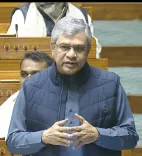Why Are 878 Journalists Targeted Under Bangladesh's Interim Government?
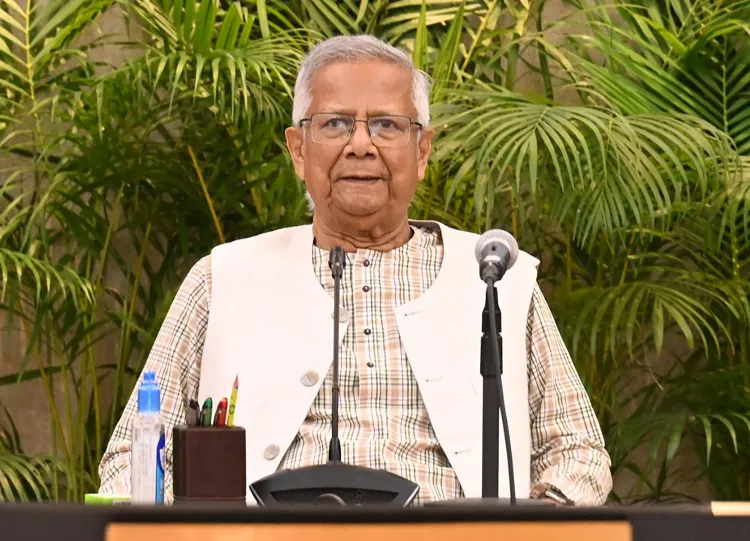
Synopsis
Key Takeaways
- 878 journalists targeted under Yunus' interim government.
- Attacks increased by 230% compared to previous administration.
- Use of accreditation denial as a tool for repression.
- RRAG plans advocacy with international bodies.
- Media freedom in Bangladesh is critically endangered.
New Delhi, Aug 4 (NationPress) - A rights organization based in New Delhi, the Rights and Risks Analysis Group (RRAG), has reported that 878 journalists have been targeted over the last year under the interim government of Bangladesh, led by Chief Advisor Muhammad Yunus. The RRAG's report, titled 'Bangladesh: Media Freedom Murdered By Dr Muhammad Yunus', indicates that attacks on journalists have surged by 230 per cent compared to the 383 cases recorded during the tenure of former Prime Minister Sheikh Hasina from August 2023 to July 2024.
The report, released on the anniversary of the fall of Sheikh Hasina's Awami League government, highlights the alarming decline in press freedom in Bangladesh, with 878 journalists attacked under the interim government from August 2024 to July 2025, marking a significant rise of 230 per cent.
In detailing the assaults on journalists, RRAG Director Suhas Chakma stated, “The number of criminal cases lodged against journalists under the Yunus administration (195 cases) surged by 558 per cent when compared to the 35 cases filed during Hasina's time (2023-2024).
While Hasina's regime did not restrict journalist accreditations, Yunus reportedly used this as a tool to penalize journalists linked to the previous government, denying accreditation to 167 media professionals.
According to Chakma, “During Hasina's term, the Bangladesh Financial Intelligence Unit (BFIU), the nation's anti-money laundering agency, was not used against journalists, but Yunus unleashed the BFIU, issuing notices to 107 journalists.
In terms of violence, 348 media personnel faced threats and violence during Hasina's administration, largely amidst the July 2024 uprising, whereas 431 journalists encountered similar threats under Yunus' rule.
The ongoing decline of media conditions under Yunus's interim government is alarming. For instance, on June 25, 2025, journalist Khandaker Shah Alam, a correspondent for Daily Matrijagat, was killed in a targeted attack by Babul Mia, a local figure known as ‘Tiger Babul Dakat’ after his release from prison.
On July 27, 2025, the Cyber Tribunal of Dhaka issued arrest warrants against three journalists under the Digital Security Act (DSA), despite assurances from Law Adviser Asif Nazrul on June 27 that all cases under the DSA had been retracted.
Additionally, on April 21, 2025, Kongkon Karmaker was removed from his role as Dinajpur correspondent for The Daily Star after his report about the death of religious minority Bhabesh Chandra Roy gained traction with various Indian media outlets and the Ministry of External Affairs of India.
Chakma further stated that to suppress the media, Yunus created the 'CA Press Wing Facts' as a covert censorship body, promoting the government’s narrative and intimidating media organizations and NGOs, including the Rights & Risks Analysis Group, through misinformation.
The RRAG plans to engage the international community, including the Human Rights (Joint Committee) of the United Kingdom, to advocate for governance reform in Bangladesh and consider the withdrawal of bilateral support in light of the pervasive media suppression in the country.


